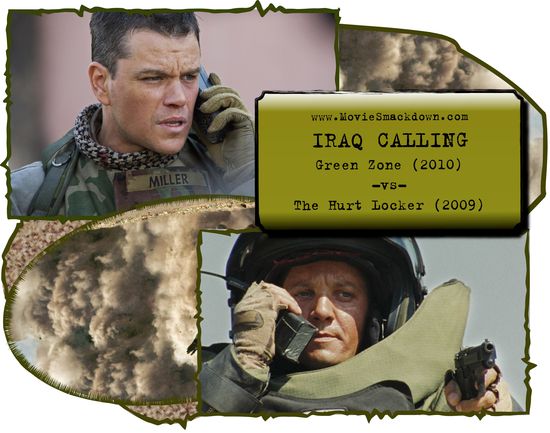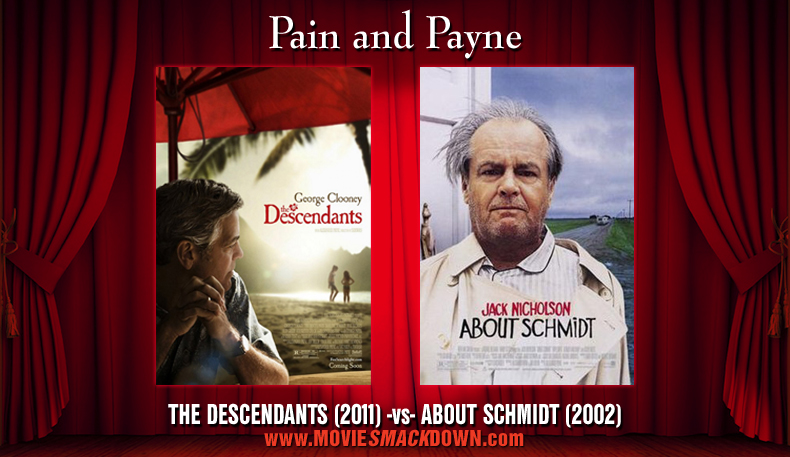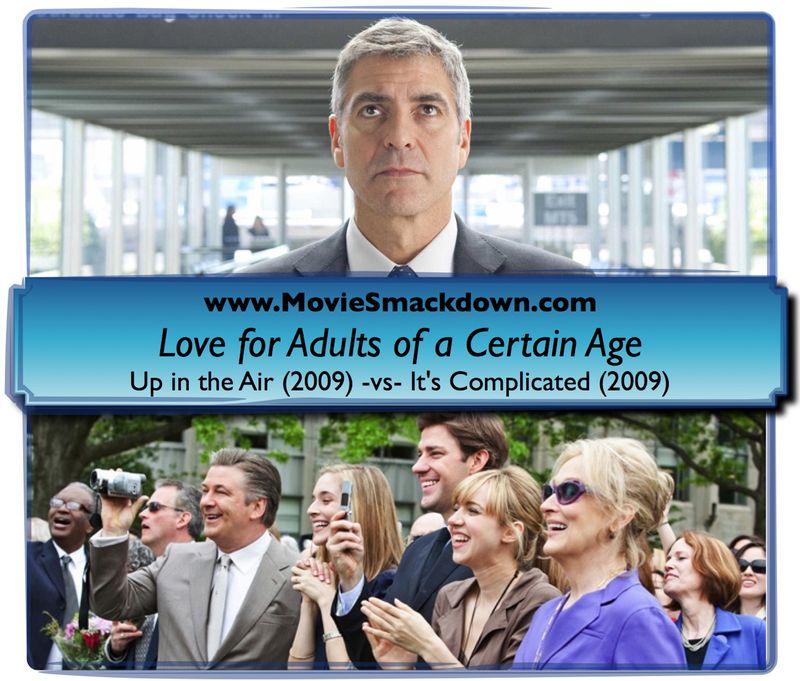
 The Smackdown
The Smackdown
It’s not a good time for the American occupation of Iraq. The news from “over there” is that the followers of Moktada al-Sadr, the radical cleric who led the Shia insurgency against the American occupation, have emerged as Iraq’s equivalent of the 1994 Republican Party. Meanwhile, back in the United States, Americans voted about Iraq, too, refusing to give “Green Zone” any mandate whatsoever. And, keep in mind that the other Iraq film that just won the Best Picture Oscar, “The Hurt Locker,” basically was one of the worst-peforming winners in that category ever. Maybe it’s just the hot button political sensitivities, war-weariness, or that it is simply “too soon.” Other critics can decide that, however, because here at the Smack, we simply want to know which film about the Iraq War gets it most right, box-office be damned!
The Challenger
Paul Greengrass teams with Bourne collaborator, Matt Damon, to craft a high-paced, shaky-cam thriller based on the book “Imperial Life in the Emerald City.” In the film, Chief Roy Miller investigates alleged WMD sites in early-occupied Iraq. But as more alleged WMD sites turn up empty and abandon, Miller breaks protocol and heads off to uncover the truth behind the Army’s lead WMD-informant, “Magellan.” As always, Greengrass directs the smart man’s action film, creating a realistic and dangerous landscape for a somewhat unbelievably simplistic story. The film’s chief crime is its enormous lack of emotion, as it seems more content sitting in its cerebral war opinions than showing the emotional toll of war.
[singlepic id=143 w=320 h=240 float=right]
The Defending Champion
Promoted as a hardcore war thriller, “The Hurt Locker” ignited Hollywood’s flare for war drama and thrust forgotten-director Katherine Bigelow into the industry spotlight. The film centers on Staff Sergeant William James, a Alpha-male bomb technician who joins an Army bomb squad following the death of the squads original leader. The team, not accustomed to James disregard for protocol and embracing of the war, struggle to gel into a cohesive unit as they handle the deadly, nerve-wrecking work of defusing the various explosive objects littering insurgency-Iraq. While the bomb defusing scenes are nail-biting at first, the film starts to waver after we realize the main character will not die — at least not for the next thirty or forty minutes — and that we don’t care about much of the soldier fodder surrounding him.
The Scorecard
At first, “The Hurt Locker and “Green Zone” may seem to share only Iraq in common. Quite the opposite, the films are enormously alike in a great many ways. And its this fact that makes the two films so easy to compare.
Tonally, the films struggle between political thrillers and action films. “The Hurt Locker” runs like a smart man’s “Saw,” with a single-minded protagonist going full-steam ahead through escalating elaborations of bomb-traps. In the end, the film leaves you with the same character as before, and presumably with more complex twists on “how many different types of weird, tense bomb constructions can we create.”
On the other hand, “Green Zone” just can’t find its genre. As it blurs the reality of its source material with the mish-mash of action and political thriller that is its fiction, “Green Zone” stumbles along without fully realizing its own identity. For those worrying that this is a Bourne knock-off, rest easy –it’s not. Bourne’s films knew what they were; “Green Zone” does not, and gives no solid film against which to compare “Bourne.”  Perhaps Greengrass own style is subconsciously disposing us to expect an action film so much so that the political thriller can’t compete with our own preconcieved notions. But it’s a warning to all directors to adapt to the material first and foresmost, rather than the other way around.
As characters, both Roy Miller and William James are down-home American boys. Initially, they’re both quite likable as they have a take-charge approach that inspires confidence in a war all too known for its insecurity. James waltzes onto screen while waltzing into a live bomb zone, not giving a damn if it goes off. Miller charges into a suspected WMD site despite the lingering insurgent sniper picking off soldiers.
But “The Hurt Locker” then begins to pain James as a stoic psychopath addicted to the adrenaline of bomb defusing and war, so much so that he returns to the war for the sake of continuing his nerve-wrecking job. This is partially excused because James needs to be this way for the film to make its anti-war statement, and also because — generally — he’s fascinating to watch.
“Green Zone” backs off and takes a safe route. It was actually refreshing to see a duty-bound soldier dedicated to saving lives, a man who sees himself as America portrays itself and is only met with the reality of the corruption behind the war. But Greengrass drops any exploration of the problem Miller faces when confronting the reality of “the just war,” when the high-minded principles on which the war was launched turn out to be false. Instead, Miller seems oblivious to the implications of his search, despite its relevance to his own worldview. It would’ve been nice to see one moment of reflection, one moment of indecision, a simple wish-washy moment of loyalty. But even when he “goes rogue,” Miller is going rogue for just another American agency…it’s all pointless (and not in a way that proves the film’s point).
But what both of these films inevitably must confront is how to deal with the subject of Iraq. Now, “The Hurt Locker” has been hailed as a film without an agenda. This just isn’t true. Look behind the thriller aspects and the good performances, and you’ll see a keen political message. “Green Zone” makes no qualms about its political message, as the final frame ends with an all-to-on-the-nose shot of oil fields in Iraq. Characters iterate thematic points to punctuate the end of an action sequence or a character’s death. In one particular scene, a good-intentioned CIA official warns the government that if they place a pupper leader in Iraq, there will be civil war. The screenwriter wants the character to come off as wise. But really, it’s the screenwriter’s own flawless 20/20 hindsight being pawned off as character wisdom and intelligence. Ultimately, the film makes a point that “it’s not our business” and moves on to the oil fields shot.
Granted, “Green Zone” does a great job showing the cluster of incompetence behind the war. The film nails showing the multiple agendas behind the war, and how the left hand never knew what the right hand was doing and neither those knew what the feet were donig if they knew they had feet at all. Damon’s character is forced to navigate these waters, and its this that keeps us interested in his journey, despite the serious character missteps in the film.
But now let’s look at “The Hurt Locker.” This “apolitical” film depicts a man who is addicted to war, who does the job of defusing bombs simply for the sake of doing it. In the process, the man fails to see the humanity of his teammates, putting them in harm’s way time and again, breaking protocol to get his way, and even getting some killed. In one sequence, an injured soldier shouts out at James “I hope you’re happy!” Essentially, the film is a dark exploration of “America’s war” and the notion of warring for the sake of war — the idea behind the perpetual war machine. The idea that when you do anything to war and get your way, the casualties are high and very human. And what a keen example that at the film’s end James abandons his family — the very mythic core of America values — and returns to Iraq. Careful to note to is how James’ departure is coated in an intentionaly thin veil of duty…
The Decision
This comes down to the film that can handle its material more cinematically, without creating a political soapbox on film. “The Hurt Locker” — while a flawed and overrated thriller — seamlessly integrates the message with the narrative, so much so that many miss the point altogether. While technically well-crafted, “Green Zone” struggles to break free from a past we all know and make itself relevant beyond the walking faucets of hindsight it calls its characters. In the end, “The Hurt Locker” wins the peace.




This film did not disappoint.. What I mean is I was expecting a gun ho American war film and this is what we got. No realism at all. Anyone behaving in the way that the main character did would be severely disciplined. Nothing seemed real. You can’t just play on the tension thing (which there was none) and expect to get away with it.
This is a poor film. I got bored very quick.
I should have known at the start when the wheel (literally) came off the wagon. Professionals would have checked, checked again and then for good measure checked again.
It was comical seeing it happen. I served in the British army in Northern Ireland and oversaw many bomb disposal incidents and none went with the disfuctionality of what we saw in this film.
Then it goes and wins the Oscars and Baftas. Those of you who think this film shows what bomb disposal is all about need a serious reality check. This film is an insult to the real people who have to do this job. Shameful
Enjoyed your blog and up to some extent i agree with your analysis. I didn’t like Hurt Locker so much as the story was quite slow. But i really enjoyed Green zone.
Enjoyed your analysis, but I don’t agree.
The Hurt Locker sucked. It was boring, it was not an action movie really. It was not rich or a multi faceted view into Iraq that the Green Zone is.
The great thing about the Green Zone is that it is disturbing pitting US Soldiers against US Soldiers and the conflict between diplomats, the military and the CIA and respects the ethnic divides that pitted Iraqies against each other. It doe so in a slick way that pulls you into the story. Whatever the military or intelligence objective, it doesn’t matter it points out the manipulation of the facts that got us in the war in the first place.
It entertains you and it makes you think. The Hurt Locker does neither.
Hurt Locker is crappy.
Because, having approach to one side is such movies really smells like propoganda and I was really sad when it gets an Oscar. Avatar
deserves it since it’s a great pace in cinematography.
Green Zone is fairly better.
Because, it has both views but not enough.
I like both. Green Zone for high octane action and Matt Damon, and then Hurt Locker for cinematic beauty.